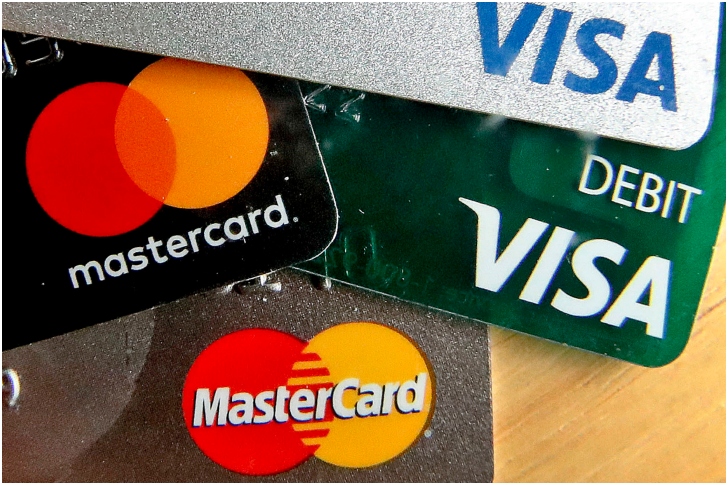
Looking Beyond Credit Card Interest Rates

Interest rates are the first and most important thing to consider when in the market for a credit card. After all, you really do not want to get stuck with a really high one for as long as you actively use the credit card. However, did you know that the interest rate is actually just the tip of the iceberg? In fact, there is a number of other factors that need just as much, if not more, attention than the ubiquitous interest rate. The reason why you need to pay attention is that these factors are often quite subtly packaged into your monthly bills so that they’re easy to overlook and you end up paying extra for things that you know nothing of. So here are the things you should know about your credit card beyond the ubiquitous interest rates:
Know thy fees.

First, there are fees. You have to be very wary of credit card companies offering very low-interest rates as this could mean that there are various fees attached. This could add up to even higher rates in the long run, so it is definitely a good idea to take any possible fees into account when comparing credit card offerings. Most credit cards offer a low set-up and/or activation fee, which is all well and good if you intend to keep the credit card for a long time. Some of the other credit card fees that you need to look out for are annual fees, finance charges, over-the-limit fees, cash advance fees, and late fees, to name a few. These are generally included in the monthly repayments, so you hardly ever notice that they are there.
Know thy monthly payments.
And speaking of monthly repayments, this is another thing that you need to consider, as well. Basically, it is not enough to base your credit card spend on what you can afford to pay monthly. Instead, you need to consider the credit limit amount in its entirety. This way, you will not be enticed to use up your entire credit limit unnecessarily, as you would usually end up paying more for the credit card this way.
Know thy penalties.
Credit card penalties are another thing that you really need to consider when choosing a viable credit card. They are actually quite similar to fees, except that they mostly look like punishment. Know that you may be slapped with penalty rates, which are triggered when you fail to make monthly payments. You are also saddled with even more penalties if you pay below the minimum amount required. And then there are over-the-limit penalties which are triggered when you try to make a purchase when you’ve used up your credit card limit.
Indeed, credit card penalties have a tendency to just sneak up on you without your knowledge and they usually fly under the radar, if you do not pay attention. So it is always a good idea to know that they exist and are out to get you.
Know thy insurance.

Lastly, you need to consider insurance. Credit card insurance is usually disguised in terms like “credit shield” or “payment protection” and the like. Although this may be beneficial, it can also be an unneeded cost. Basically, credit card insurance is designed to pay off your credit card debt if something unforeseen occurs, like your death or disability or even involuntary unemployment. It is an excellent premise, but one that might not fit all lifestyles and obligations. So it is important to consider how beneficial it can be to your particular situation before being talked into buying it.
Sometimes, credit card insurance is already included in your account by default. Be aware that you do have the option to opt out of it, though, if you so choose—especially if there is a hefty fee involved.
Suffice it to say, low-interest rates do not always translate to a great deal when it comes to credit cards. For example, while some may benefit from low-interest credit cards that have higher fees and/or penalties, you may find a somewhat higher interest rate to be more suitable for you, as long as your fees are kept to a minimum. In truth, it all depends on your specific circumstances, as well as your long-term objectives.
More inFinancial Advisory
-
Katy Perry’s Real Estate Journey: Legal Battles and Property Pitfalls
Katy Perry, the pop sensation known for her chart-topping hits, bold fashion choices, and stint on American Idol, has been making...
December 15, 2023 -
What To Do When Markets Are Volatile?
Market volatility refers to the frequency and magnitude of price movements in financial markets. It is like the weather of the...
December 7, 2023 -
The Cheapest Days to Book Flights and Travel
When it comes to snagging the best deals on flights and travel, timing can be everything. It is like finding that...
November 27, 2023 -
The 4 Optimal Times to Consider Rebalancing Your Portfolio
Navigating the investment world is like hopping on a roller coaster—ups, downs, twists, and turns galore. Whether you’re a hands-on trader...
November 26, 2023 -
Buying a House? Understand You Are Buying a Liability, NOT an Asset
In the grand tapestry of life goals, owning a house is often stitched in golden thread. It is the culmination of...
November 19, 2023 -
How to Tell If You Are Financially Prepared for Change
So, you are contemplating a big life change, huh? Maybe you are considering relocating to a new city, pursuing a new...
November 9, 2023 -
The Best Foods to Eat Before a Flight
Flying can be an exhilarating experience, but it can also be physically demanding. Long lines, security checks, and cramped seats can...
November 3, 2023 -
How to Spot a Bull Market Return: Signs to Look Out For
When it comes to Wall Street, or the investing world at large, investors and traders dream of catching the wave of...
October 26, 2023 -
Become a Millionaire Before Getting Retired | Fidelity’s Ultimate Retirement Advice
We have all daydreamed about it at one point or another: sitting on a pristine beach with the sun kissing our...
October 19, 2023















You must be logged in to post a comment Login